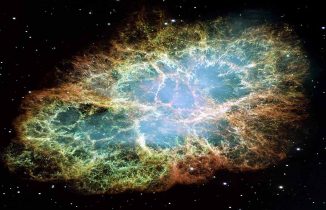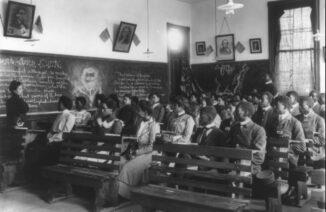Good News in History, July 4
20 years ago today, in quite unbelievable fashion, Greece beat Portugal 1-0 to become European champions for the first time in her history. Several pundits labeled Greece’s tournament win the greatest upset in the history of the European Championship; among these was BBC Sport’s John May, who cited Greece’s record of never having previously won a match at a major event. READ about the match… (2004)

The shock of this upset was perhaps best put into perspective by the subsequent performance of Greece in future tournaments. They didn’t even qualify for the 2006 FIFA World Cup, and in the next edition of the tournament in 2008 they came last in their group, winning no points and scoring just 1 goal over 3 matches.
EURO 2004 was held in Portugal, and as the hosts they played the first match in their capital of Lisbon; against Greece, their eventual opponents in the final 5 games later. They lost 2-1 in what was called a shock defeat.
Both Greece and Portugal faced stiff competition on the road to the final, and knocked out France, Spain, the Netherlands, and England between them. In the final, a “dull” first half turned dramatic when in the 57th minute, Angelos Charisteas scored a powerful header from a corner kick to give Greece a 1-0 lead they would onto all the way until full time.
Writers in France’s Le Parisien wrote that the Greeks were “heroes of modern mythology who entered into legend and broke the hearts of all of Portugal”.
More Good News on this Day:
- Leaves of Grass is first published in NY, Walt Whitman’s seminal book of poems (1855)
- The Philippines is granted independence by US after 381 years of colonialism (1946)
- The Freedom of Information Act was signed into law by US President Lyndon B. Johnson (1966)
- Direct flights across the strait between mainland China and Taiwan commenced (2008)
- The Statue of Liberty’s crown reopened to the public 8 years after the 9/11 World Trade Center attacks (2009)
970 years ago today, a star in the constellation Zeta Tauri exploded into a supernova, and was so bright as to be recorded as a celestial phenomenon in Chinese, Arab, Japanese, and potentially also European and Amerindian cosmology records. Aside from proving just how awesome the human race’s abilities are for stargazing, regardless of civilizational advancement, the remnants of this star today form the spectacular Crab Nebula, posing as easily one of the finest celestial supermodels known.

SN 1054, literally “supernova from 1,054 CE” is one of eight galactic supernovae that can be identified in written testimony through the historical record. It was originally a French linguist who translated the Wenxian Tongkao (文献通考) a 378-page encyclopedia that contained reference to SN 1054.
The oldest and most detailed record however is from Japan—in the Meigetsuki, the diary of Fujiwara no Teika (1162–1241), a poet and courtier. SN 1054 could also have been seen by Jacobus Malvecius from Brescia, in Italy, but it’s disputed, as are petroglyphs in Arizona and New Mexico made by the Ancestral Puebloan peoples, that depict the moon near a star that would be the correct placement for the supernova if that were what was intended. (1,054)
143 years ago today, the Tuskegee Institute opened in Alabama as a one-room school. The esteemed historically-black college was founded with permission and a $2,000 grant from legislators, with educator Booker T. Washington at the helm. 30 adult pupils attended the first classes in a shanty owned by an AME Zion Church.

Soon after, the campus was moved to a “100-acre abandoned plantation,” which is the present site, and where Dr. Washington is buried. 50 years later the number of students had increased 100-fold, and renowned botanist George Washington Carver conducted his pioneering studies on peanut cultivation there.
Dr. Frederick Patterson, who oversaw the establishment of the School of Veterinary Medicine at the university, brought the Tuskegee Airmen flight training program to the Institute. The all-Black fighter squadrons became highly decorated World War II combat veterans. Dr. Patterson also founded the United Negro College Fund, which has raised more than $1 billion for student aid.
At the time of Washington’s death in 1915, there were 1,500 students, a $2 million endowment, 40 majors, 200 faculty, and 100 buildings on campus. (1881)
Happy Birthday to the United States of America. On this day 248 years ago, the leaders of the Continental Congress of the 13 American colonies voted to adopt the Declaration of Independence, breaking with the King of England to form their own country. (1776)
179 years ago today, the American writer Henry David Thoreau embarked on a two-year experiment in simple living at Walden near Concord, Massachusetts. Thoreau built a small cabin (10 x 14 feet) on land owned by Ralph Waldo Emerson in a forest around the shores of Walden Pond.

He published Walden, or Life in the Woods nine years later, recounting the two years he had spent on the land. Part memoir and part spiritual quest, Walden later became an American classic for its exploration of natural simplicity, harmony, and beauty as models for a meaningful world. WATCH a short tour… (1845)
Also, 85 years ago today, Lou Gehrig, afflicted with a fatal disease, stepped to a microphone at New York’s Yankee Stadium and announced his retirement from baseball, telling the crowd that he considered himself “The luckiest man on the face of the earth”.
The poignant address was “one of the most touching scenes ever witnessed on a ball field”, said The New York Times. The 61,808 fans were silent during the minute-long speech, then rose to their feet thundering a hearty farewell during a two-minute standing ovation. Known as ‘baseball’s Gettysburg Address’ it began like this: “Fans, for the past two weeks, you’ve been reading about a bad break. [Referring to his ALS diagnosis, which we now call Lou Gehrig’s disease.] Today I consider myself the luckiest man on the face of the earth.” The 36-year-old was visibly shaken as he stepped back from the microphone, and wiped the tears away from his face with his handkerchief. Then, Babe Ruth came over and hugged him as a band played I Love You Truly and the crowd chanted, ‘We love you, Lou’.
He continued, “I have been in ballparks for 17 years and have never received anything but kindness and encouragement from you fans. When you look around, wouldn’t you consider it a privilege to associate yourself with such fine-looking men as are standing in uniform in this ballpark today?” He closed by saying, “So I close in saying that I might have been given a bad break, but I’ve got an awful lot to live for. – Thank you.”
The humble Gehrig set several major-league records during his career, including the most career grand slams—23—and most consecutive games played (2,130), a record that stood for 56 years, was long considered unbreakable, and earned him the name The Iron Horse. He died two years later. (1939)
And, on this day 86 years ago, Bill Withers, was born. The soulful American singer-songwriter and musician earned three Grammys and a place in the Rock and Roll Hall of Fame for his classics, “Lean on Me“, “Ain’t No Sunshine“, “Use Me” and “Just the Two of Us”.

Born in the small coal-mining town of Slab Fork, West Virginia, he spoke with a stutter in his childhood until he overcame it serving for nine years in the US Navy when he turned 18. He then moved to Los Angeles and worked in factories, while pursuing a music career. Even after he debuted with the song “Ain’t No Sunshine”, he refused to quit his job because he believed the music business was too fickle. The singer died in 2020. (1938)
SHARE The Milestones, Memories, and Music…
>read more at © GoodNews
Views: 1
